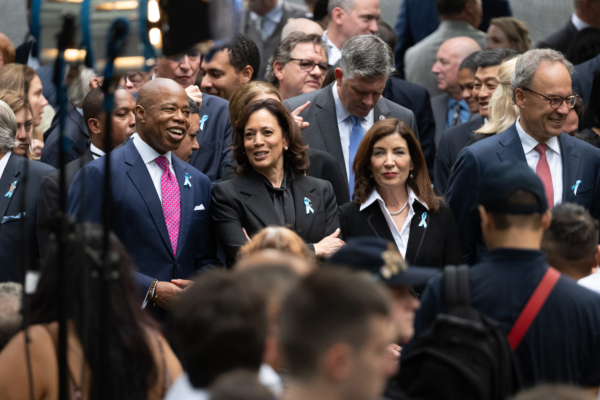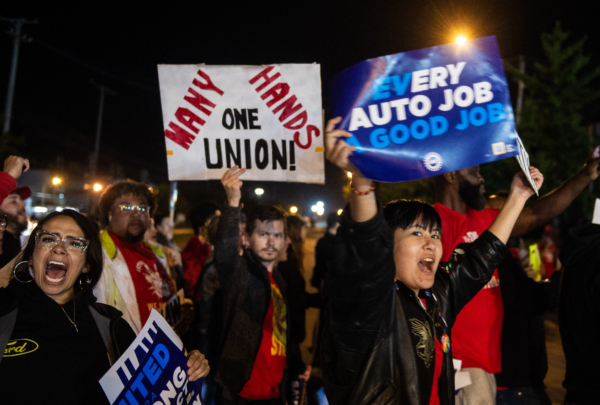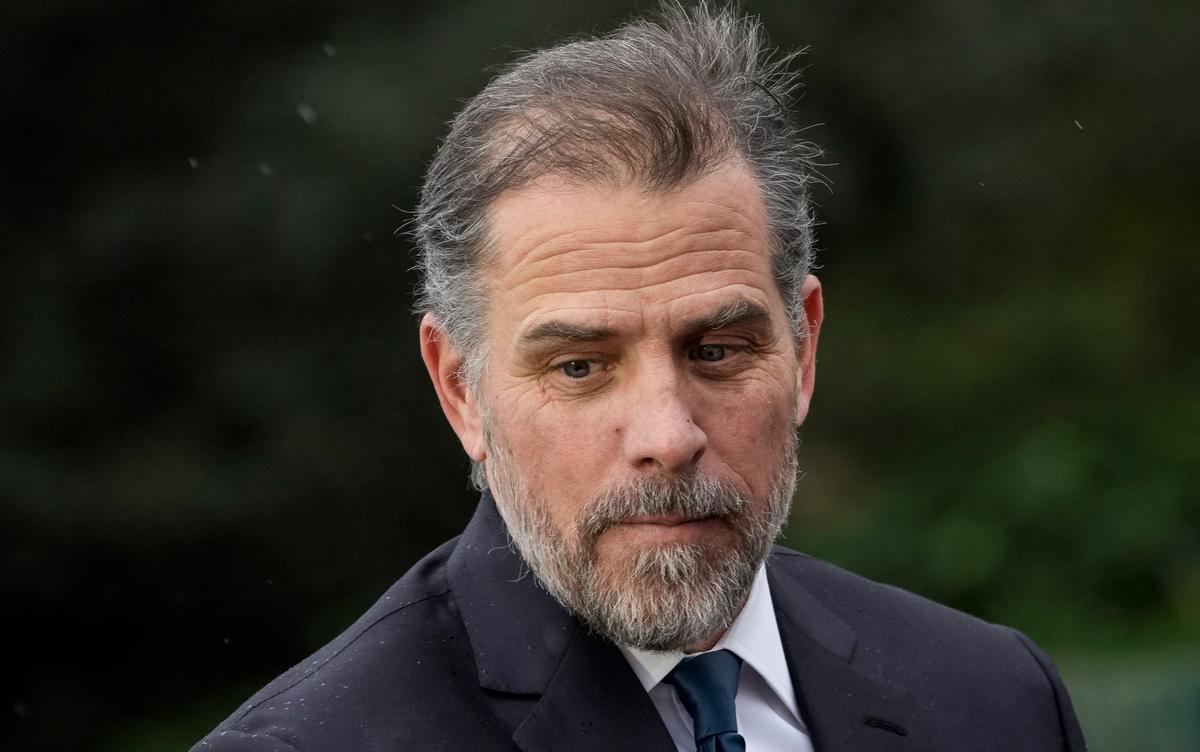|
|
|
|
|
|
SUBSCRIBER EXCLUSIVE | SEPTEMBER 17, 2023 |
|
|
|
|
|
|
CORRECTION: The Top Story dispatch sent on Sept. 16 did not contain the correct last eight paragraphs.
Please find the corrected version below.
The Epoch Times regrets the error. |
|
|
|
A Tough Week for President Biden |
|
|
Mark Tapscott Senior Congressional Correspondent |
|
When historians assess Joe Biden's tenure in the Oval Office, it is likely they will point to the week that began on Sunday, Sept. 10, as having six of the most challenging days of his presidency, culminating in the federal indictment of first son Hunter Biden on three gun-related felony charges.
Consider the events of each of those six days:
Sunday—President Biden woke up to this headline in David Ignatius's column in the Washington Post: "President Biden Should Not Run Again in 2024." Mr. Ignatius is one of the president's favorite journalists, one of the few he has consistently read throughout his five decades as a senator, vice president, and the nation's chief executive. Mr. Ignatius, who is tightly sourced in the intelligence community and is a leading influencer of Democratic progressive thought, cited a survey that found 69 percent of Democrats think President Biden, 80, is too old to be president for a second term. The column said plainly what many prominent Democrats have kept to themselves.
"Right now, there’s no clear alternative to Biden—no screamingly obvious replacement waiting in the wings. That might be the decider for Biden, that there’s seemingly nobody else. But maybe he will trust in democracy to discover new leadership, 'in the arena,'" Mr. Ignatius writes.
Monday–On the 22nd anniversary of the 9/11 attacks that killed nearly 3,000 Americans in 2001, President Biden became the first president not to commemorate those losses by attending memorial services at the World Trade Center in New York, the Pentagon in Washington, the crash site of Flight 93 in Pennsylvania, or at the White House.
On the last leg of his return journey from Vietnam, the president instead chose to deliver remarks at a U.S. military base near Anchorage, Alaska, while Vice President Kamala Harris attended the 9/11 ceremony in New York. The Vietnam stop had been scheduled in advance of the 9/11 memorials, the administration said. |
|
|
(Spencer Platt/Getty Images) |
|
Tuesday–Speaker of the House Kevin McCarthy (R-Calif.) announced the chairmen of three committees that have been investigating allegations of influence-peddling by President Biden and his son Hunter will proceed to a formal impeachment inquiry. That move is expected to make it much more difficult for the Biden administration to withhold documents and witnesses sought for months by the three chairmen.
Wednesday–As President Biden was preparing to address a reelection campaign rally in Maryland the next day, the latest Consumer Price Index report showed inflation increased in August to an annual rate of 3.7 percent, up from 3.2 percent in July. The continuing inflation challenges the president's attempts to sell "Bidenomics" as the key to restoring economic prosperity.
Thursday–Special Counsel David Weiss announced three felony gun charges against Hunter Biden, weeks after a plea agreement with the Justice Department fell apart.
Friday–Members of the United Auto Workers (UAW) walked out of selected automotive assembly plants of General Motors, Ford, and Stellantis (formerly Chrysler), marking the first time the storied union struck each of the "Big Three" at the same time.
The union is demanding a 46 percent pay raise, a shorter workweek, and other new benefits, making a speedy settlement difficult to achieve. There are nearly 10 million automotive-related jobs in the economy, and every such position helps support an estimated 10.5 millions positions in other industries. An extended strike will inflict damage throughout the U.S. economy. |
|
|
(Matthew Hatcher/AFP via Getty Images) |
|
All of these setbacks help explain the president's low public approval ratings, such as the 35 percent in the most recent CNN survey. Even so, campaign strategists in both major political parties The Epoch Times interviewed mostly agreed that the biggest news of the week—the indictment of Hunter Biden—will have minimal impact on the 2024 election results.
Republican strategist Jimmy Keady said he doubts the indictment will change President Biden's determination to win a second term in the White House.
“The indictment of Hunter certainly casts a dark cloud over Joe’s reelection campaign; it also serves as a stark reminder of the ethical questions many voters have surrounding the Biden family's business dealings,” Mr. Keady said.
"One thing we know for certain, the Biden team is oblivious to public perception, and this likely won’t impact his decision on running again. Just look at their comments about how popular they think Bidenomics is.”
Another Republican strategist, congressional veteran Brian Darling, said he "expects that this upsets the Biden Team because it will open the Biden family up to allegations of illegality within the family, but there is no way Hunter Biden will ever see jail time. Whether President Biden wins reelection or not, he will be pardoning his son in the days after election day next fall."
At the White House briefing on Friday, Press Secretary Karine Jean-Pierre told reporters that President Biden won't pardon his son. But Democratic strategist and former New York state senator David Carlucci remains confident despite the multiple setbacks of the week that President Biden will be reelected.
"We also must remember that we are very early on in the election season. Half of Biden’s supporters might be open to another candidate right now, but these numbers will shrink as we get closer to November 2024 and voters realize that the 'perfect candidate' does not exist."
Mr. Carlucci noted “you know you’re losing a race if your top criticism of your opponent is his age." He said he views concerns about the first son's indictment, President Biden's age, and the prospect of him being succeeded by Ms. Harris as "just a distraction from the fact that the Republicans are not running on policy this year. By the end of the year, [former President Donald] Trump will be dealing with at least four criminal cases. Biden just needs to worry about another candle on his birthday cake.” |
|
|
|
|
|
|
Mark Tapscott Senior Congressional Correspondent |
|
|
|
To dig deeper into the subject, read the following original reporting by our journalists: |
|
|
|
McCarthy Launches Impeachment Inquiry of President Joe Biden By Lawrence Wilson |
|
|
|
|
|
Hunter Biden Indicted on Felony Gun Charges By Tom Ozimek |
|
|
|
Thank you for being a subscriber |
|
|
|
Copyright © 2023 The Epoch Times. All rights reserved. |








